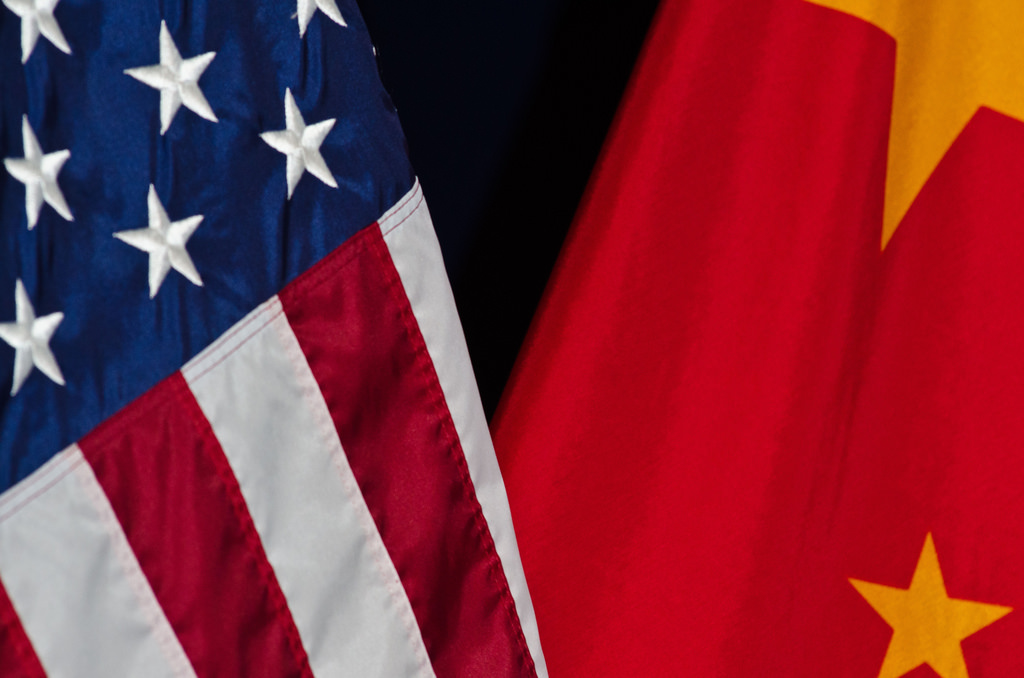The latest US-China trade talks in London yielded limited progress, leaving key export control issues unresolved. While both sides agreed to ease tariffs—55% on Chinese goods and 10% on US goods—critical national security-linked export restrictions remain a major hurdle to a broader deal.
Sources familiar with the talks said Beijing refused to grant export licenses for specialized rare-earth magnets like samarium, essential for US military equipment including fighter jets and missile systems. In response, Washington continues to block China’s access to advanced artificial intelligence (AI) chips, citing their military applications.
China, which holds a near-monopoly on rare earth production and processing, linked the magnet exports to lifting AI chip restrictions—a new twist in the ongoing trade saga. Although Beijing agreed to fast-track export licenses for non-military U.S. firms and create a “green channel” for trusted companies, restrictions on military-grade materials remain intact.
President Donald Trump hailed the handshake deal as a win, despite unresolved issues. Treasury Secretary Scott Bessent ruled out any “quid pro quo” between AI chips and rare earth access. Still, US officials are considering extending existing tariffs for 90 days beyond the August 10 deadline set in Geneva, as key disputes persist.
Analysts remain skeptical. China’s limited concessions and its leverage over rare earths cast doubt on a long-term resolution. The Trump administration is reportedly preparing to justify future tariff hikes under Section 301 of the U.S. Trade Act in case of legal setbacks.
Experts warn that Beijing’s strategic control over critical minerals could continue to stall negotiations, making a comprehensive deal unlikely in the near term. The rare earth–AI chip standoff reflects deeper tensions in the geopolitical and tech rivalry between the world’s two largest economies.



 US Stock Futures Dip Amid Escalating Iran Tensions and Fed Decision
US Stock Futures Dip Amid Escalating Iran Tensions and Fed Decision  Trump Extends TikTok Sale Deadline to September Amid China Tensions
Trump Extends TikTok Sale Deadline to September Amid China Tensions  Oil Prices Surge Amid Israel-Iran Tensions and Supply Disruption Fears
Oil Prices Surge Amid Israel-Iran Tensions and Supply Disruption Fears  Trump Cuts G7 Visit Short, Calls National Security Meeting
Trump Cuts G7 Visit Short, Calls National Security Meeting  Canada and U.S. Target 30-Day Deal Amid Tariff Dispute
Canada and U.S. Target 30-Day Deal Amid Tariff Dispute  Trump Pushes to Open 82% of Alaska’s Petroleum Reserve for Drilling
Trump Pushes to Open 82% of Alaska’s Petroleum Reserve for Drilling  Cristina Kirchner Placed Under House Arrest After Corruption Conviction
Cristina Kirchner Placed Under House Arrest After Corruption Conviction  Dollar Holds Firm Amid Middle East Tensions and Central Bank Uncertainty
Dollar Holds Firm Amid Middle East Tensions and Central Bank Uncertainty  NYC Comptroller Brad Lander Arrested Amid Trump Immigration Crackdown
NYC Comptroller Brad Lander Arrested Amid Trump Immigration Crackdown  Trump Still Pursuing Iran Nuclear Deal Amid Israel-Iran Tensions, Says Hegseth
Trump Still Pursuing Iran Nuclear Deal Amid Israel-Iran Tensions, Says Hegseth  Asian Stocks Dip Amid Iran-Israel Tensions, BOJ Decision in Focus
Asian Stocks Dip Amid Iran-Israel Tensions, BOJ Decision in Focus  Dollar Strengthens Amid Middle East Tensions and Fed Rate Uncertainty
Dollar Strengthens Amid Middle East Tensions and Fed Rate Uncertainty  Gold Prices Hold Steady Amid Middle East Tensions and Fed Rate Decision Focus
Gold Prices Hold Steady Amid Middle East Tensions and Fed Rate Decision Focus  U.S. Futures Rebound Ahead of Fed Decision Amid Israel-Iran Conflict
U.S. Futures Rebound Ahead of Fed Decision Amid Israel-Iran Conflict  G7 Targets Critical Mineral Security Amid China Supply Risks
G7 Targets Critical Mineral Security Amid China Supply Risks  Judge Blocks Trump-Era Passport Policy Targeting Transgender and Nonbinary Americans
Judge Blocks Trump-Era Passport Policy Targeting Transgender and Nonbinary Americans  European Stocks Rise as Markets Weigh Middle East Conflict, Fed Decision
European Stocks Rise as Markets Weigh Middle East Conflict, Fed Decision 






























